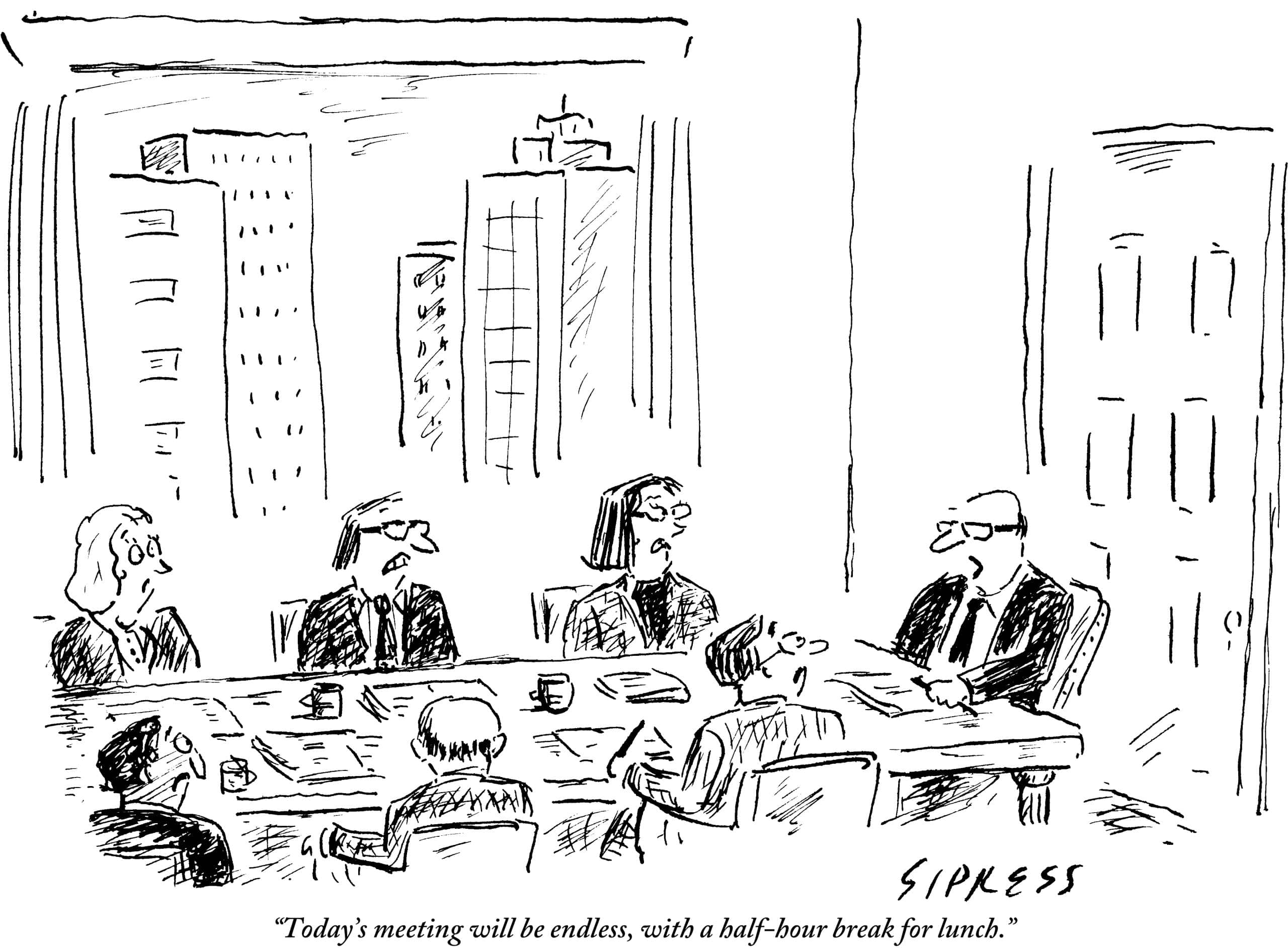
“Meetings”: The very word sucks the energy out of the room. Yet we commit more and more of our time to them. To be specific, 15% of an organization’s time is spent in meetings, and every day, “the transcontinental conference room known as the white-collar United States plays host to 11 million meetings, according to research collated by Fuze, the telecommunications company (which might have a stake in publicizing research designed to stoke meeting fatigue).” One study found a way to calculate that the American workplace wastes more than $37 billion in “unproductive meetings.”
Perhaps we are seeking some reprieve from the loneliness of our cubicles and lunch in front of the computer screen. They’ve become so pervasive that not only do many professions get buried by them; an increasing number of jobs are built on them. One can fill a whole career of planning, holding and attending meetings.
As Heffernan contemplated the problem, she increasingly thought it likely that meetings couldn’t be avoided – but, perhaps they could be made bearable. And as she set out to see if anyone had a bright idea, she wrote the observations in “Meet Is Murder”: check out the full NYT article here.





